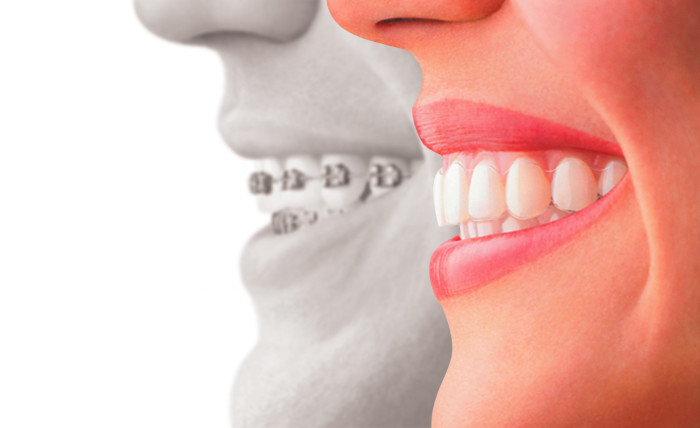The Invisalign Diet Is The Best Diet. Here's Why.
Atkins. Weight Watchers. Paleo. Zone. South Beach. Mediterranean. Whole30. Chances are that you've heard of at least a couple of these popular diets. There's also a strong likelihood that you've tried one or two of them over the years. Perhaps you even managed to lose some weight along the way. Good for you. I'm here, however, to tell you about the past two serious pound-shredding months of my life, during which — get this — I haven't had to follow a single dietary restriction or workout routine. Does this all sound too good to be true? Allow me to explain the Invisalign diet.
There was no ulterior motive behind my decision to begin wearing Invisalign. I had always sported a sizable space between my top two front teeth and my dentist had recommended at each annual visit that I undergo six months of Invisalign treatment to correct this unsightly gap (his words, not mine). I finally acquiesced late last year. Call it the smallest of quarter-life crises, a delayed reaction to years of half-hearted mockery from friends or a knee-jerk adherence to an opened fortune cookie around that time proclaiming I would soon undergo a "big transformation." Invisalign, for those of you unfamiliar, is best described as invisible braces of sorts, removed during the day only during meals.
The side effects of wearing Invisalign are immediately apparent. (Note: Upon the first visible sign of gap shrinkage, a large number of acquaintances came out of the woodwork to express their sudden affinity for and wax poetic about the same attribute they once ridiculed. But I digress.) With a requirement stipulating that the trays be worn for around 22 hours per day in order to achieve the desired results and the arduous process of removing and cleaning the Invisalign each and every time it is removed, there's very little wiggle room — no pun intended. As such, eating food becomes less of a timely necessity and more of a general burden.
Let's be real here — no piece or two of plastic is going to come between a food writer and his unwavering desire to chow down heartily at a hot new restaurant. But those midday snacks lying around the office? They turn, almost like clockwork, into more of an imposition than a convenience. The mere idea of a lengthy, multicourse lunch becomes unthinkable, lest it compromise the long-term goal. Much like a more conventional diet, the stomach takes just a few days to adapt to these new eating patterns.
Perhaps best of all, the Invisalign diet encourages laziness: Shall I get up from my desk, head to the bathroom to remove my aligners and carefully place them in a container, just to enjoy one of the bagels delivered to the office, knowing all the while that I'll have to dutifully undo all of this "damage" in a matter of minutes? Or shall I simply remain seated and continue living my life? It's a no-brainer. I've even spared you the unsanitary details that only strengthen my case to skip out on the extra grub.
The most basic of principles really are the most effective, sometimes. Just like parents might apply a bad-tasting lacquer to a child's nails to discourage biting or a dog might be fitted with a shocking collar to eliminate excessive barking, a plastic insert can — both literally and figuratively — come between you and your overeating. And in today's world, where essentially any food item can be purchased or delivered with one click of a button, that piece of plastic just might be the easiest way to avoid clicking.
For those of you that are driven almost entirely by numbers, I've lost close to 15 pounds in the past two months — and I have yet to notice any cravings or increases in appetite. Simply put, the Invisalign diet is the most effective "diet" I've ever been on, and I've spent my fair share of time following stringent nutritional guidelines.
Of course, despite the impressive and instant results, several questions remain. This product is, after all, designed with a genuine dental purpose in mind, and not as a tool intended for dieting (though we imagine your dentist would have no problem agreeing with you on some sort of excuse to spring for it, considering it runs in the neighborhood of a few thousand dollars for an entire cycle, dependent on length of treatment and other factors). Would it be somewhat ridiculous to invest in it with a primarily dietary motivation? And will the eventual completion of treatment coincide with inevitable post-diet weight gain? Yes. To all. But then again, isn't the whole fad-diet craze just one big ridiculous premise?


